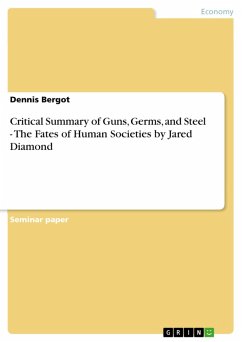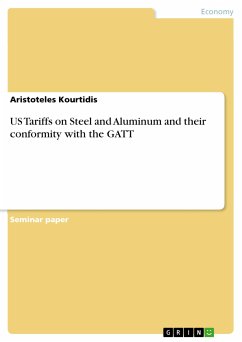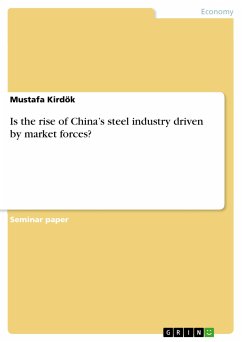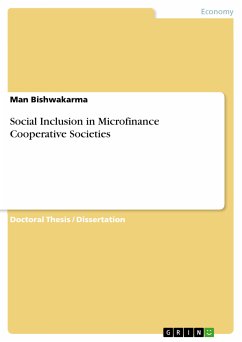Seminar paper from the year 2004 in the subject Economy - Environment economics, grade: 1,0 (A), University of Hamburg (Centre for Sea and Climate Research), course: Seminar Contemporary Environmental Problems, language: English, abstract: The starting point of Diamond's book "Guns, Germs, And Steel" is a question he was asked by an indigenious New Guinean friend of his called Yali. His question was: "Why is it that you white people developed so much cargo and brought it to New Guinea, but we black people had little cargo of our own?"1, adressing the obvious inequality in wealth and power of today's world. With his book, Diamond tries to provide an answer for this question. According to Diamond, the immediate causes for the inequalities in the world today are to be found in the different stages of development between the continents as of around A.D. 1500. By that time, only societies of Eurasia, the landmass that constitutes Asia and Europe, and there especially the Western Europeans, possessed ocean-going ships, population-decimating germs, steel weapons, horses usable for warefare, easy spread of information by an efficient writing system and many other means that come in handy decimating, subjugating or in some cases even exterminating the originial inhabitants of other continents. Diamond calls these advantages the proximate factors of differing developments that led to the inequalities. The book's title "Guns, Germs, And Steel" can be understood as a summary of these proximate causes. In chapter three of his book, Diamond cites as a prominent example of the inequalities the conquest by the Spaniard Francisco Pizarro and a few hundred soldiers over the Inca emperor Atahuallpa at Cajamarca/Peru in A.D. 1532. The Spanish got there and won because they possessed the above stated proximate factors. He then turns the point around and asks why, for instance, the Native Americans or Aboriginal Australians were not the ones who possessed these proximate factors and used them to conquer Europe. [...]
Dieser Download kann aus rechtlichen Gründen nur mit Rechnungsadresse in A, B, BG, CY, CZ, D, DK, EW, E, FIN, F, GR, HR, H, IRL, I, LT, L, LR, M, NL, PL, P, R, S, SLO, SK ausgeliefert werden.









